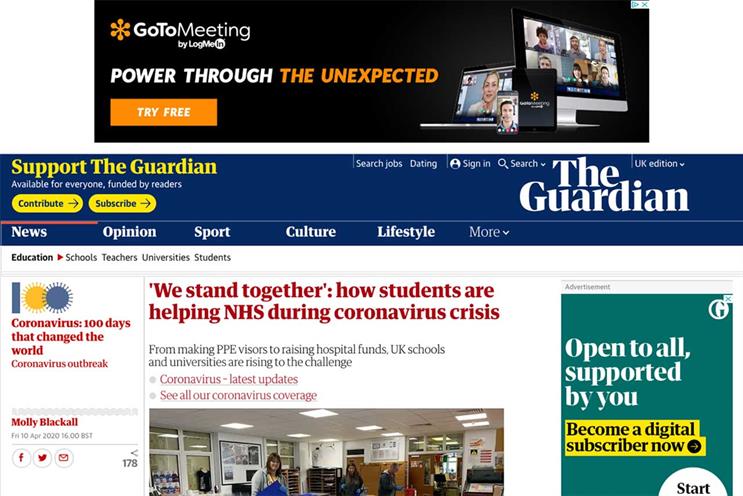
ISBA, the Internet Advertising Bureau UK and the IPA have backed the government’s call for brands to review their use of keyword blocking during the coronavirus pandemic.
The industry trade bodies are contacting their members and have on how to responsibly review content-verification strategies.
This advice has been in a letter to 100 major UK brands.
Meanwhile, a by leading content-verification companies DoubleVerify, Integral Ad Science and Oracle Data Cloud, co-ordinated by the IAB, warns brands against the use of a "blanket approach or overzealous use of keyword blocking".
Instead, it advises: "…A pragmatic approach, with consideration that not all Covid-19 content is damaging to all brands and there continues to be high-quality, educational journalism from trusted news sources. This content can provide opportunities for brands to reach their audiences at scale and they can do so safely with the support of our technologies and expertise."
News brands in the UK have complained that as much as £50m in online advertising revenue may be lost due to coronavirus keyword blocking.
Keyword blocking, also known as blacklisting, is a tool that automatically blocks ads from appearing alongside content that mentions certain words (such as "coronavirus" or "Covid-19"). It is a quick and easily implementable way for brands to avoid the possibility that their online advertising appears next to harrowing stories about people dying or facing economic hardship as a result of the disease.
Much of online display advertising is bought programmatically and served to web users according to the data that is held or estimated about them, rather than the content of the web page they are on.
The majority (62%) of online content containing coronavirus is, in fact, brand safe for the average big company, a study of nearly three million web pages by artificial-intelligence media company GumGum found last week.




.jpg)
.jpeg)
